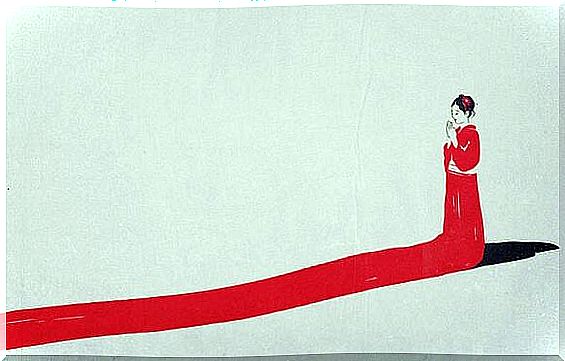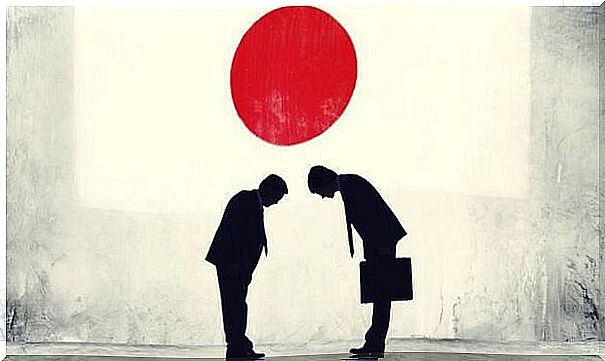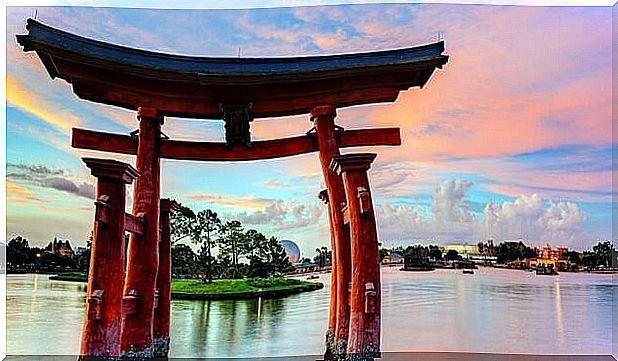The 5 Key Factors Of Japanese Psychology

Japanese psychology is deeply rooted in a very specific philosophy of life. The Japanese are reluctant to reveal their feelings and tend to channel them in a spiritual way. They value the opinions of family members and society very much, and it is very important to them to cultivate this image of themselves, which shows that they respect those around them to the greatest possible extent, that trust within the group is of great importance and should be strengthened every day.
Despite the fact that Japanese culture seems both interesting and distant to us, we want to emphasize that people from our two cultures share the same concerns. Financial hardships, marital problems, workplace stress, university pressures, and personal crises are precisely those everyday challenges that Japanese psychology seeks to address through an analytical approach, with personalities like Hayao Kawai standing out as the main clinical references.
At first glance, Japanese psychology may seem very different to that of the West. Yet both have a lot in common, similar approaches based on the principles of Asian or Buddhist philosophy that focus on personal overcoming and resilience.
Factors such as high pressure to perform have always shaped the Japanese population. It’s not for nothing that Japan keeps coming into focus because its suicide rate is one of the highest in the world. Unfortunately, this is an indisputable fact, but we should also mention that the suicide rate among the Japanese population has fallen significantly since 2006. The Japanese government has invested a lot of money in psychological support for those at risk of suicide and in preventive measures. Most suicides are committed in the major economic centers such as Tokyo or Kyoto, where people are considerably less balanced and less satisfied with their lives than is the case, for example, in rural areas.

The 5 key factors in Japanese psychology
Thanks to books such as Social Psychology of Modern Japan by Munesuke Mita (in German: Sozialpsychologie des Moderne Japans , not available in German), we can discover a large part of these approaches that make up Japanese culture, which seem both traditional and ultra-modern and sophisticated.
In order to fully understand the Japanese philosophy of life and the dynamics that guide Japanese psychology, it is also helpful to know its five key factors and to understand how the Japanese handle their emotions, how they behave, or what strategies psychologists promote of psychological well-being usually set in.
1. The world of emotions: Honne and Tatemae
As we may have guessed, the Japanese go to great lengths to hide their feelings and tend to be reserved or even hermetic about how they express themselves. It is interesting that they handle their emotional world in the context in which they find themselves.
The term “Honne” refers to the feelings that each individual expresses, that they work on and that they can manage in their own way in their own home. This is done from a spiritual point of view, because Japanese psychology is rooted in Buddhism and Taoism. In these two religions each person should find out for himself how he can heal and set himself free. The term “tatemae”, on the other hand, refers to behavior in public, where they are cautious and where respect, balance and moderation are paramount.

2. Trust within the community
Japan is a society with a very strong sense of community and social cohesion. Respect for the family, as well as respect for the community itself, which must not be disregarded in order to always guarantee the common benefit and not that of the individual, has top priority. For example, if a Japanese person has a cold, he immediately puts on a mask so as not to infect others.
You identify with the group, have a solid, well-defined social being that is basically very useful in dealing with disasters, as was the case with the 2011 tsunami and also the earthquake that devastated much of Fukushima Prefecture.
3. Arugama: Accept everything as it is
Acceptance is a fundamental concept in Japanese psychology. However, acceptance does not mean surrender or resignation. The Japanese know that any material or substance that is characterized by resilience breaks at some point: Those who do not accept and resist, do not flow, do not adapt and consequently do not survive.
Arugama is the essence of change that is believed to occur after accepting that things are as they are and that there is no other option but to move on.
4. Mindfulness
In Japanese psychology, so-called morita therapy is widespread. This is a psychological strategy based on self-centered attention. This therapy is very similar to Albert Ellis’ rational-emotional therapy. This may be familiar to many of us, but the Far Eastern culture has been practicing it for a very long time. One of the characteristics of this therapy is to become aware of inner experiences, suffering, frustration, anxiety, fear and so on.
Thus, once the person comes into contact with their personal reality, the therapist usually recommends four strategies to promote recovery: absolute rest, meditation, a balanced diet, and gradual preparation for daily life.

5. Think about your own experiences and relate them to nature
This approach is very interesting. Usually, in Japanese psychology, people are taught the need to practice introspection. People should be able to view their own life stories, i.e. everything that happened, what one had to suffer, what was discovered and what was enjoyed, from a broad perspective. You are invited to see your personal stories as events that also occur in nature.
We all grow and mature, we all go through phases that leave deep marks, similar to those in the bark of trees. Likewise, each of us can thrive in the most adverse of situations if we let our roots grow out to become stronger beings. Life is movement, like the flow of a river that never ceases to flow; like the wind that sets the leaves and the surface of the water in motion. Instead of seeing ourselves as victims of fate, we can be like nature itself, always looking to renew and keep growing.
In summary, we can say that Japanese psychology is not as unknown to us as it first appears. Many of our psychological approaches are also nourished by the principles of self-improvement that are so inspiring in our everyday lives.









